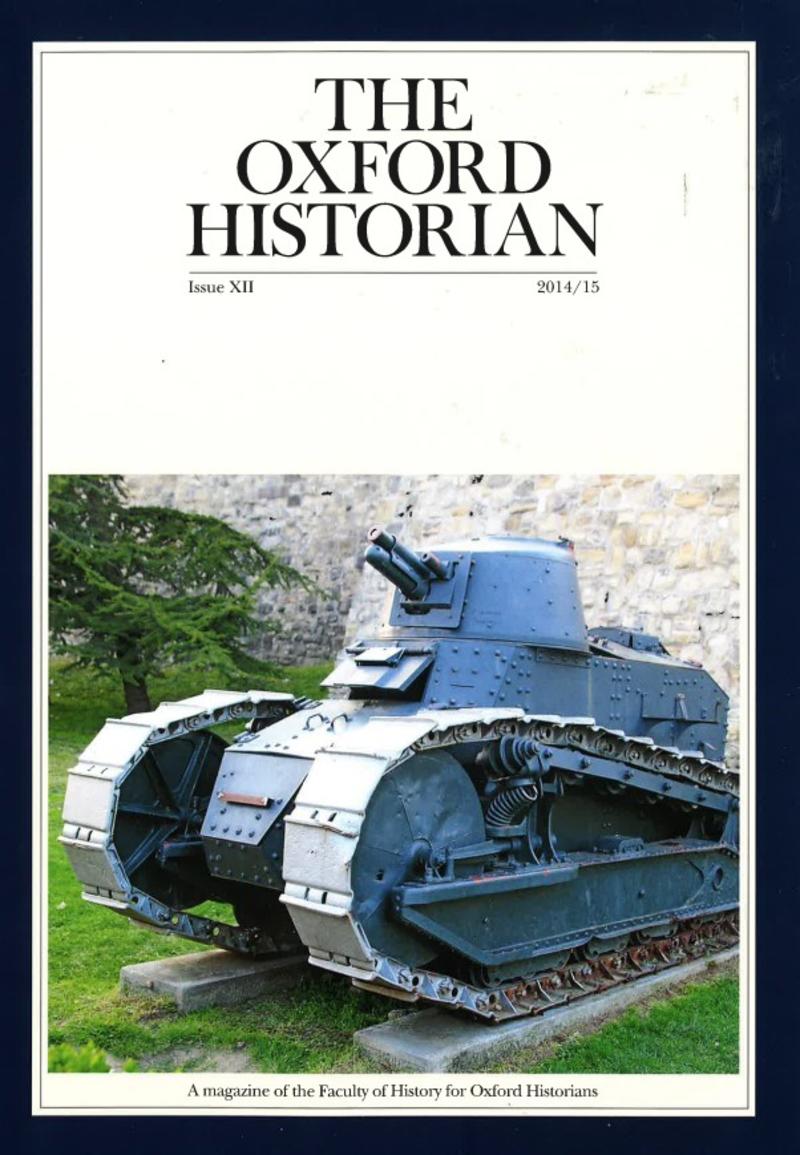Stepping down after three eventful years, Jane Humphries explains why we need your support
2014-15 has been another eventful and busy year in the History Faculty taken up with a wide-ranging review of the curriculum, celebration of our success in the Research Excellence Framework (followed by sober assessment of what we could do better in future), and as ever, energetic efforts to find new funding sources to support students, endow posts and finance research.
The undergraduate curriculum lies at the heart of what we do, and periodic review is essential to ensure the continued excellence and relevance of the Oxford History degree. With so many conscientious colleagues and strong opinions on all sides this has made for lively debate, but as ever in this Faculty, arguments have been good-humoured and open to different points of view. The goal is to preserve the strengths of the current course while making time and space for new initiatives, more varied methods of assessment, and in general allow undergraduates to take full advantage of the huge range of expertise the Faculty has on offer. There is nowhere more exciting to read history in the world than Oxford, and we hope that will be even more true in future. Everybody has been involved (which in a highly democratic Faculty like ours means a lot of people and a lot of work), but we hope to agree changes this term and start to put some of the new ideas into practice from next year.
While we have been busy on that front, we have also been enjoying the results of our very successful submission to the Research Excellence Framework conducted by the Higher Education Funding Council for England (HEFCE). The REF, as I reported last year, is the new system for assessing the quality of research in UK higher education institutions. The assessment is so important because it determines national research funding and provides accountability for public investment in our work. Preparing the submission has taken two years and we have been hugely supported in it by the good will, humour and thoughtful co-operation of colleagues across the Faculty, as well as help from all the Colleges, the Department of Continuing Education, and the University Museums. Members of the Faculty's Planning and Finance Committee helped edit and shape the so-called 'Impact Case Studies' which HEFCE wanted to see, and a small Faculty group was given the task of reading everything we were to submit. As I reported last year, the goal was make the best submission possible, but almost as important was sustaining the History Faculty as a united community of scholars. We knew it was more important to allow colleagues the space to develop their work over a lifetime, rather than badger them into projects that might possibly maximise the Faculty's score over an artificial cycle. Everybody was obviously delighted by the excellent outcome for the Faculty when the results were made public, and it is a pleasing vindication of what we were trying do.
The Faculty's success can be put down to the fact that we were not only the largest submission of any History department in the UK, but we also achieved very high scores for the quality of our research. That combination adds up to what the REF calls a 'research power' ranking, and in that we excelled. Obviously this result is very gratifying and will go some way to protecting our share of the public funding of research — although how the REF performance will translate into funding after the autumn Spending Review remains to be seen. The important point is that we are doing all that we can to ensure our continuing position as a world class research Faculty.
Yet, to introduce a darker note, despite these efforts and our evident international standing, we still find that we are unable to offer funding to any but a handful of our outstanding graduate applicants. A few find offers elsewhere in the UK or the US, but many, including some of our very best students have to give up on graduate work. At so many levels these are serious losses. There is also the fact that we struggle to support our colleagues' research when it is at a preliminary stage. I feel many really good research projects, particularly those designed by younger scholars who have not yet acquired the reputations needed to tap into large scale funding, fall by the wayside for lack of support when they are at an infant stage.
It is for these reasons that in this, my third and final 'How it looks from the Chair', I am emboldened to appeal for your support. I know that we all get tired of requests for financial support and that in asking for your help I am in competition with many other good causes. But I hope that remembering my forbearance in earlier years and seeing how hard we have been working ourselves to protect and secure our academic standing and research culture, you will feel moved to contribute to our graduate scholarships fund or to our Faculty research grants. Oxford History has many friends and alumni out in the wider world. Even small donations from such a substantial group can make a real difference to our students and our research.
It has been a privilege to serve the Faculty for the last three years and a pleasure to meet so many interesting, warm hearted and involved alumni. Thank you.
- JANE HUMPHRIES
Chair of the Faculty Board
Professor of Economic History and Fellow of All Souls College
All Souls College




